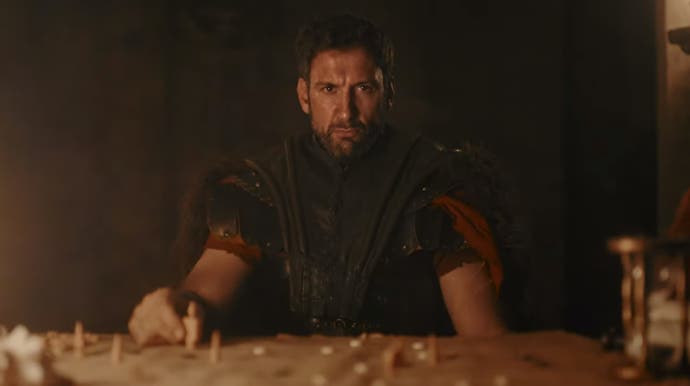In a series-first, the classic Rome: Total War is getting an extensive remaster
Feral Interactive talks balance changes, new factions, and "quite a huge amount of uplift on the visuals".
Creative Assembly's much-revered strategy classic Rome: Total War is getting a remaster, in celebration of the Total War games reaching their 20th anniversary this year.
It's a big first for the series, and is mostly being handled by London-based Feral Interactive, in collaboration with Creative Assembly itself. It's coming to Windows, Mac and Linux on 29th April this year, with cross-platform multiplayer available from the off - another series first - and will include both the Alexander and Barbarian Invasion expansions. It'll also launch at £24.99 here in the UK, with a 50 per cent discount to £12.49 if you already own the original. Here's a look at the first trailer:
Feral Interactive has plenty of history with Total War, taking on the mobile ports of the original Rome as well as handling the Mac and Linux versions of the many others in the series for some time now. Rome: Total War is a proper classic for strategy fans, of course - Feral's managing director, David Stephen, referred to the process as "a bit like recutting the crown jewels", which sounds somewhat nervewracking, but we spoke to Tom Massey and Edwin Smith, the team's head of production and head of design respectively, to get a bit more detail on what to expect from the remaster, and it sounds extensive.
The big point they both stressed was that this is very much a "remaster, not a remake" - most of the changes or new things are experiential, above all. A lot of time has been spent making sure that it "feels like a modern game", as Smith put it, "so you can jump straight from Three Kingdoms into Rome Remastered."
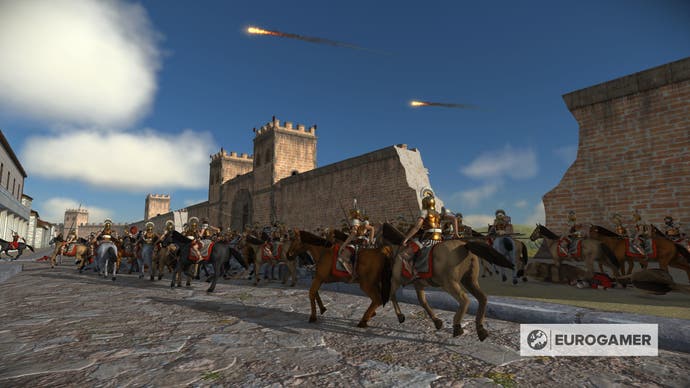
The pair gave plenty of examples. Shortcuts and commands have been updated, as there were "certain limitations" with the original. The user experience in general has been improved, so you can view and sort proper lists of settlements by things like population growth, meaning less time spent "clicking around" finding things, and there's a new "agent hub and quick agent panel" so you don't have to go looking for individual diplomats or spies that are available. There are also modern tools coming though, like tactical maps in the 3D battles and heat maps in the campaign, and a whopping 16 newly playable factions on top of the original 22.
There's been a fairly thorough pass on balance, too, by the sounds of things: players often found there was "a bit too much squalor" in the late game, according to Smith, so that's been tweaked to "improve the logic" there and give you better tools for controlling it. There's an emphasis on filling the later game with "less grind, more fun", and Massey mentioned the team has "tried to do an entire rebalancing of the factions and units", too.
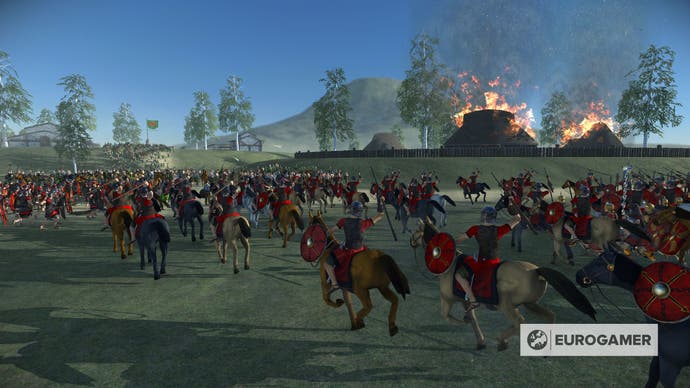
Aside from that, Smith highlighted the efforts made to add "quite a huge amount of uplift on the visuals". The remaster is based on the original engine, "with some modifications, and improvements", as Massey put it, but with an "entirely rewritten renderer". The result, basically, is "access to modern image processing techniques, visual effects - we now support Ultra HD resolutions, ultrawide screens, and pretty much every asset in the game has been reworked in one way or another. All the units across all three games have been updated".
Those units have now been "remodelled, retextured," and likewise where the original only had a single soldier variant for each unit, Massey said, the remaster has now added the kind of variation you'd expect from the modern Total War games. One crucial part of that has been in a more accurate approach to soldier ethnicities, Smith noted, where the place you replenish units from will accurately reflect the ethnicity of those newly recruited soldiers in your armies.
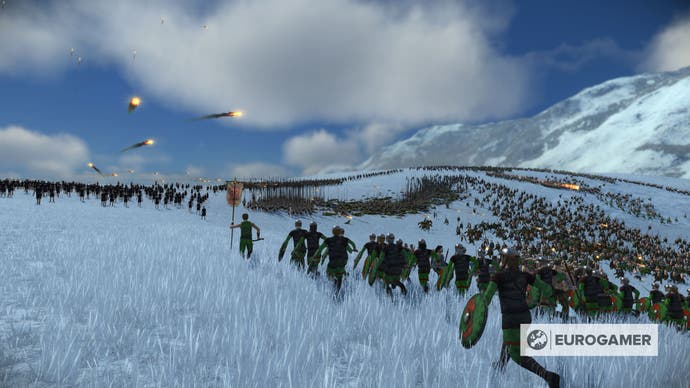
There have been some "unique challenges", Massey said. "Everybody has a memory of what Rome was to them, and quite often the 'best' version of what Rome was to them." There are some "quirks" in the original game, as he put it, "and for some people, they gave it flavour - and some people use it for the benefit of the way that they played the game, and other people they just simply remembered it with those quirks."
Feral has added some toggles, for that reason, letting you turn the new features or updated elements on or off, including those unit and faction balance changes. There are "four or five" main ones: one for all the 3D battle improvements, for instance; one for all the campaign ones, and then others for standalone features - merchants have been added, for example, but this means you can toggle that whole system off if you fancy it.
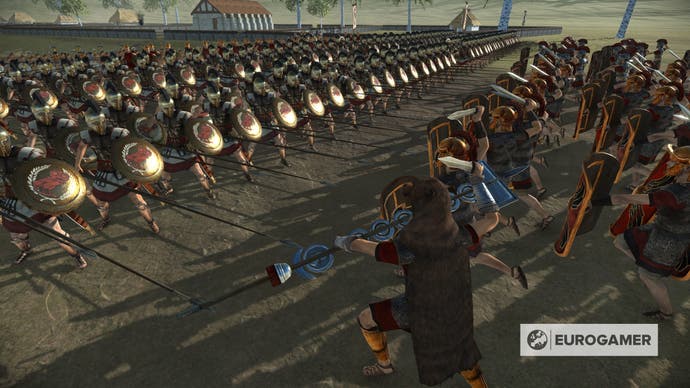
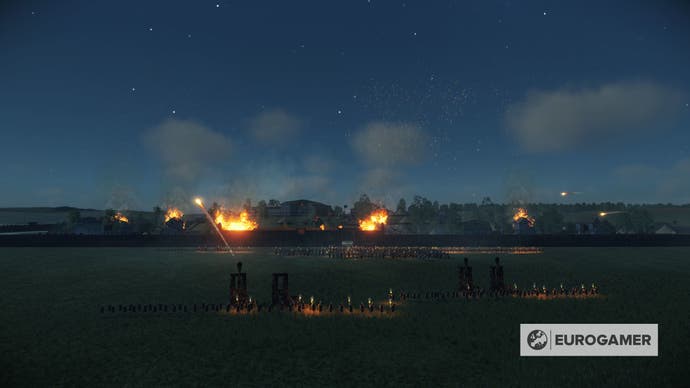
Finally, there's proper mod support, which intentionally ties into the toggled improvements. Smith used an example of Feral's fixes to "population issues with recruitment": players could easily have a mod that uses all the other campaign improvements, but that specifically doesn't use that tweak because they don't want it.
Even with those toggles though, Feral seems to have attempted some real restraint in how much exactly gets changed. The remaster's been in the works for a good two or three years, Smith told me, and so naturally the team was tempted to look at some more ambitious tweaks to things. One example is law and order, which Rome requires you to handle by keeping some units back in a garrison, while the newer Total Wars give you more automatic ways of handling things. As Smith put it: "there is a question of, if you add all those things in, is it still Rome? I think we've just tried to be very, very careful."
In other words then: still a remaster, not a remake. Although there is one more big change - it is now Total War: Rome Remastered, not Rome: Total War, which lines up the name with all the others in the series. Fellow fans of Steam library organisation, rejoice!
